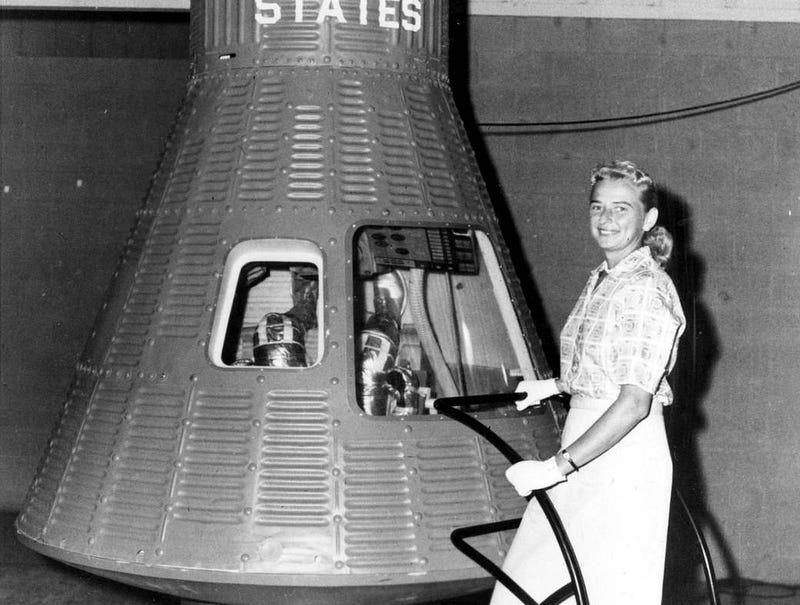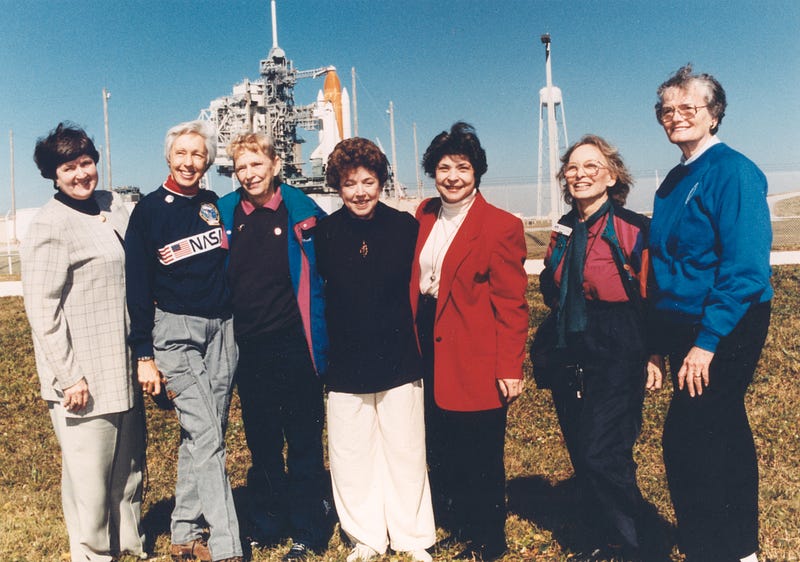Honoring Jerrie Cobb: A Trailblazer for Women in Space Exploration
Written on
Chapter 1: A Pioneer’s Journey
Jerrie Cobb, a groundbreaking figure in advocating for women in space, passed away at 88 on March 18 at a hospice in Sun City Center. Her death was publicly announced a month later. Cobb is best recognized for her role as a prominent member of the Mercury 13—a group of women who undertook the same rigorous tests as the male Mercury Seven, but were denied the opportunity to travel to space solely because of their gender.
Born Geraldyn Menor Cobb, she became the first woman to successfully complete all the preflight evaluations similar to those taken by the Mercury astronauts, although these assessments were not formally sanctioned by NASA. Often referred to as NASA’s inaugural female astronaut candidate, she faced significant barriers, as the agency did not permit female candidates until 1978—15 years after Valentina Tereshkova became the first woman in space.
In 1983, Sally Ride made history as the first American woman to orbit the Earth, while the first U.S. space mission commanded by a woman didn’t occur until 1995, when pilot Eileen Collins invited Cobb to the launch site as a special guest.

“Cobb, along with 24 other women, underwent physical evaluations akin to those of the Mercury astronauts, with the hope of becoming astronaut trainees. All participants in the First Lady Astronaut Trainees (FLAT) program were highly skilled pilots,” NASA notes in a biography of this remarkable space pioneer.
Section 1.1: Taking to the Skies
Cobb was born in 1931 and took to the skies in her father's open-cockpit Waco airplane at just 12 years old, earning her pilot’s license by 16. By age 18, she was qualified to train other pilots. After a year at Oklahoma College for Women (now the University of Science and Arts of Oklahoma), Cobb pursued a career as a semi-professional softball player, saving enough to buy a surplus World War II Fairchild PT-23 airplane.
Flying an Aero Commander, Cobb set three world records, including the longest non-stop flight and a light-plane speed record in 1959, followed by a record for the highest altitude reached in a lightweight aircraft at 37,010 feet. She also made history as the first woman to participate in the Paris Air Show.
After the war, aviation jobs predominantly went to men, leading Cobb to take on less desirable roles such as crop dusting and transporting goods to the Peruvian Air Force. During one such mission in Ecuador, she was detained under the suspicion of espionage.
Subsection 1.1.1: The Road to Recognition
These remarkable feats caught the attention of scouts seeking women capable of enduring the challenges of spaceflight. However, the roles envisioned for women in space were largely restricted to traditional duties such as operating communications and performing clerical tasks.
The initiative led Cobb to undergo the same testing as the Mercury astronauts, a challenge she successfully completed. She went on to recommend 25 other female pilots, half of whom also qualified. Those involved in the FLAT program, evaluated by Dr. Randy Lovelace without official NASA endorsement, became collectively known as the Mercury 13.
Section 1.2: Advocacy for Equality
Despite her significant achievements, media portrayals of Cobb were often sexist, focusing on her physical appearance rather than her qualifications. In 1962, she testified before Congress on the necessity of allowing women to travel to space, and advocated against NASA's requirement that astronauts be trained combat pilots—a stipulation that further restricted women’s opportunities, as female service members were barred from combat training.
When the Soviet Union successfully launched Tereshkova into space in 1963, Cobb highlighted this event to argue that women were equally capable of handling the demands of space travel. “The testing project funded privately by Lovelace gained renewed media interest following Tereshkova's historic flight. In response, Clare Booth Luce published a critical piece in Life magazine, showcasing photographs of all thirteen finalists, thereby bringing their names to public attention for the first time,” notes Margaret A. Weitekamp from NASA.
The Mercury 13 were just as qualified as Tereshkova to fly in space, yet, like many women in science, their talents were often overshadowed by their male counterparts.
Chapter 2: The Legacy of Jerrie Cobb
In her later years, Cobb dedicated her life to humanitarian efforts, flying missions in the Amazon as a Christian missionary, delivering food and medical supplies to underserved communities. She authored two books, Women into Space and Solo Pilot, and received numerous accolades, including the Amelia Earhart Gold Medal of Achievement and the Bishop Wright Air Industry Award. The National Organization for Women lobbied for Cobb to participate in space shuttle missions as part of geriatric studies involving John Glenn, but this initiative did not succeed.

In 1995, Cobb was invited to witness the launch of the first U.S. space mission piloted by a woman. An off-Broadway play titled They Promised Her the Moon, produced in 2017, depicts Cobb’s life and legacy.
Cobb made significant contributions toward advancing women’s rights in parallel with the civil rights movement and the early days of human space exploration. Her relentless advocacy helped shape the current understanding at NASA regarding the crucial roles women will continue to play in the exploration and colonization of space. Jerrie Cobb stands as a beacon of inspiration for future generations.